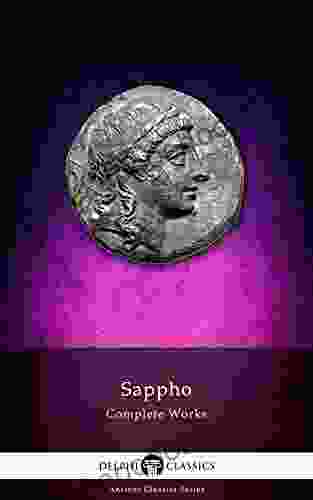Unveiling the Cornerstone of French Governance: A Comprehensive Guide to the Constitution of France

:
In the tapestry of nations, France stands as a beacon of democracy and human rights. Its fundamental principles are enshrined in a cornerstone document, the Constitution of France, which serves as the blueprint for the nation's political and legal framework. This article delves into the depths of this pivotal document, exploring its history, structure, and the profound impact it has had on French society.
Historical Antecedents:
The Constitution of France traces its roots to a rich history of constitutional development. The first written constitution in France emerged during the tumultuous French Revolution in 1791. Subsequent constitutions were adopted in 1793, 1795, 1799, and 1814, as the nation navigated periods of revolution, empire, and restoration. The current constitution was adopted on October 4, 1958, under the leadership of President Charles de Gaulle.
5 out of 5
| Language | : | English |
| File size | : | 2482 KB |
| Text-to-Speech | : | Enabled |
| Screen Reader | : | Supported |
| Enhanced typesetting | : | Enabled |
| Word Wise | : | Enabled |
| Print length | : | 353 pages |
Structure and Preamble:
The Constitution of France is divided into a preamble and 16 titles, each covering specific aspects of governance. The preamble, a powerful statement of principles, affirms the adherence to human rights, the sovereignty of the people, and the indivisibility of the Republic. It draws inspiration from the Declaration of the Rights of Man and of the Citizen, proclaiming the equal rights and freedoms of all citizens.
Title I: Sovereignty:
Title I establishes the fundamental principles of sovereignty and the organization of the state. It vests sovereignty in the French people, who exercise it through their elected representatives and referendums. The title defines France as an indivisible, secular, democratic, and social Republic. It also outlines the powers of the President of the Republic and the Parliament.
Title II: The President:
Title II focuses on the role of the President of the Republic, the head of state and the symbol of national unity. The President is elected for a five-year term by direct universal suffrage. The title establishes the President's powers, which include appointing the Prime Minister, dissolving the National Assembly, and representing France internationally.
Title III: The Government:
Title III governs the structure and functions of the government. The Prime Minister, appointed by the President, leads the government and is responsible for its actions. The government is accountable to the National Assembly, which can force its resignation through a vote of censure. The title also outlines the roles of the various ministries and their relationship with the executive.
Title IV: Parliament:
Title IV establishes the bicameral Parliament, consisting of the National Assembly and the Senate. The National Assembly, elected by direct universal suffrage, is the dominant chamber, while the Senate, elected indirectly, serves primarily as a body of review. The title outlines the powers of Parliament, including passing laws, approving the budget, and overseeing government actions.
Title V: The Judiciary:
Title V governs the structure and powers of the judiciary, which is independent of the legislative and executive branches. The title establishes the principle of judicial independence, ensuring that judges are impartial and free from political influence. The judiciary is composed of various courts, including the Court of Cassation, the highest court in France.
Title VI: Constitutional Council:
Title VI creates the Constitutional Council, a body responsible for reviewing the constitutionality of laws and international treaties before their promulgation. The Council plays a crucial role in ensuring that legislation conforms to the Constitution and protects fundamental rights and freedoms.
Title VII: Economic and Social Council:
Title VII establishes the Economic and Social Council, a consultative body that advises the government and Parliament on economic and social matters. The Council is composed of representatives from various sectors, including labor unions, businesses, and social organizations. Its opinions are not binding but can influence government decision-making.
Title VIII: The High Court of Justice:
Title VIII creates the High Court of Justice, a special court responsible for trying members of the government for serious crimes. The court is composed of members of the National Assembly and the Senate and is convened only when a formal accusation is made by the Parliament.
Title IX: The Court of Accounts:
Title IX establishes the Court of Accounts, an independent body responsible for auditing the government's finances and ensuring the proper use of public funds. The court's reports are public and can serve as a basis for legal proceedings.
Title X: Overseas Territories:
Title X governs the status of France's overseas territories and their relationship with the mainland. The title outlines the principles of territorial autonomy and self-administration while maintaining France's sovereignty over these regions.
Title XI: New Caledonia:
Title XI deals specifically with the status of New Caledonia, a French overseas territory with a unique history and culture. The title establishes a specific framework for the governance of New Caledonia, including provisions for its gradual transition to self-determination.
Title XII: The European Union:
Title XII addresses France's membership in the European Union. The title affirms France's commitment to European integration while safeguarding its national sovereignty. It provides for the ratification of EU treaties and outlines the procedures for cooperation between French authorities and EU institutions.
Title XIII: Defense:
Title XIII governs the organization and functioning of France's defense forces. The title establishes the principles of national defense, including the obligation of military service and the role of the military in protecting the nation's security and interests.
Title XIV: The Environment:
Title XIV addresses environmental protection and sustainable development. The title affirms the fundamental right to a healthy environment and imposes obligations on the state to take measures to prevent environmental degradation. It also establishes principles for the management of natural resources and promotes the transition to a green economy.
Title XV: Reform Provisions:
Title XV outlines the procedures for amending the Constitution. It distinguishes between ordinary amendments, which can be initiated by the President or Parliament, and fundamental amendments, which require approval by referendum. The title also includes provisions for the revision of the Constitution in the event of a major political or societal change.
Title XVI: Miscellaneous Provisions:
Title XVI contains various miscellaneous provisions related to the interpretation and implementation of the Constitution. It includes provisions for the accession of new territories to the Republic, the establishment of special committees, and the procedures for the appointment and dismissal of certain high-ranking officials.
:
The Constitution of France is a living document that has shaped the political, legal, and social landscape of the nation for over six decades. Its principles of democracy, human rights, and the separation of powers provide the foundation for a stable and just society. The constitution continues to evolve, reflecting the changing needs and aspirations of the French people. Understanding the Constitution of France is essential for comprehending the functioning of the French government and the fundamental values that underpin French society.
5 out of 5
| Language | : | English |
| File size | : | 2482 KB |
| Text-to-Speech | : | Enabled |
| Screen Reader | : | Supported |
| Enhanced typesetting | : | Enabled |
| Word Wise | : | Enabled |
| Print length | : | 353 pages |
Do you want to contribute by writing guest posts on this blog?
Please contact us and send us a resume of previous articles that you have written.
 Book
Book Novel
Novel Page
Page Chapter
Chapter Text
Text Story
Story Genre
Genre Reader
Reader Library
Library Paperback
Paperback E-book
E-book Magazine
Magazine Newspaper
Newspaper Paragraph
Paragraph Sentence
Sentence Bookmark
Bookmark Shelf
Shelf Glossary
Glossary Bibliography
Bibliography Foreword
Foreword Preface
Preface Synopsis
Synopsis Annotation
Annotation Footnote
Footnote Manuscript
Manuscript Scroll
Scroll Codex
Codex Tome
Tome Bestseller
Bestseller Classics
Classics Library card
Library card Narrative
Narrative Biography
Biography Autobiography
Autobiography Memoir
Memoir Reference
Reference Encyclopedia
Encyclopedia Sibylle Scheipers
Sibylle Scheipers Nigel Freestone
Nigel Freestone Sean O Connell
Sean O Connell Founding Fathers
Founding Fathers Peter Browning
Peter Browning Sarah Woodbury
Sarah Woodbury Pauline Nzilani Mwanzia
Pauline Nzilani Mwanzia Steven E Rhoads
Steven E Rhoads Stephen Fox
Stephen Fox Terry S Samansky
Terry S Samansky Phil Zabriskie
Phil Zabriskie Paullina Simons
Paullina Simons Nick Taylor
Nick Taylor Sever Bronny
Sever Bronny Patrick M Whitehead
Patrick M Whitehead Kris Butler
Kris Butler Samuel Scheffler
Samuel Scheffler R M Stones
R M Stones Ron Avi Astor
Ron Avi Astor Simon R Green
Simon R Green
Light bulbAdvertise smarter! Our strategic ad space ensures maximum exposure. Reserve your spot today!

 Robert Louis StevensonWitness to the German Revolution: An Eyewitness Account of the Tumultuous...
Robert Louis StevensonWitness to the German Revolution: An Eyewitness Account of the Tumultuous... Eliot FosterFollow ·4.5k
Eliot FosterFollow ·4.5k Morris CarterFollow ·19.4k
Morris CarterFollow ·19.4k Jaden CoxFollow ·4.9k
Jaden CoxFollow ·4.9k Dion ReedFollow ·14.8k
Dion ReedFollow ·14.8k Forrest ReedFollow ·18k
Forrest ReedFollow ·18k Dean CoxFollow ·12k
Dean CoxFollow ·12k Matthew WardFollow ·8.2k
Matthew WardFollow ·8.2k Lee SimmonsFollow ·14.3k
Lee SimmonsFollow ·14.3k

 Shaun Nelson
Shaun NelsonUnlocking the Intricate Nexus: The Globalization and the...
In an era marked by...

 Robin Powell
Robin PowellLast Summer at the Golden Hotel: A Captivating Journey of...
Synopsis: A Transformative Summer at...

 Gabriel Mistral
Gabriel MistralContracts And Conmen In Europe Scramble For Africa
The late 19th and early...

 Glenn Hayes
Glenn HayesThe Story of the United States' Longest Wildcat Strike: A...
Prologue: The...

 Evan Hayes
Evan HayesBritain Empire Resistance Repression And Revolt:...
: The Tapestry of...

 Eddie Bell
Eddie BellGreen's Operative Hand Surgery: The Ultimate Guide for...
Green's Operative Hand Surgery is the...
5 out of 5
| Language | : | English |
| File size | : | 2482 KB |
| Text-to-Speech | : | Enabled |
| Screen Reader | : | Supported |
| Enhanced typesetting | : | Enabled |
| Word Wise | : | Enabled |
| Print length | : | 353 pages |










